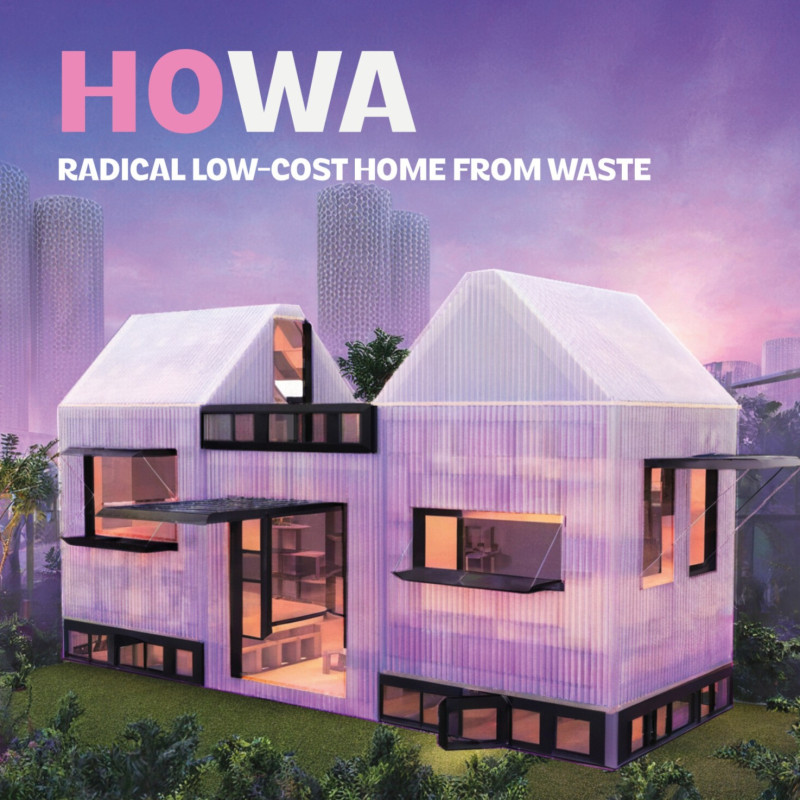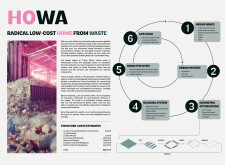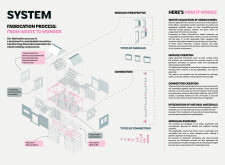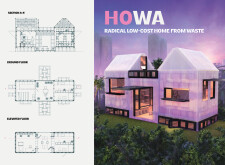5 key facts about this project
# Analytical Report: HOWA - Radical Low-Cost Home from Waste
## Overview
HOWA is designed to address global housing shortages and waste management challenges through the innovative use of recycled materials. Situated within urban environments, the project embodies the principle of "Urban Mines," focusing on the sorting and repurposing of waste, particularly plastics, textiles, and glass. This initiative seeks to advance sustainable living and social equity by creating low-cost housing solutions that cater to various community needs.
### Spatial Strategy and Modular System
The project features a modular building system comprising interlocking components made from repurposed waste materials. Adaptability is a core attribute of this design, allowing for customization based on individual community requirements. The geometric approach emphasizes topologically interlocking modules (TIM), facilitating both scalability and flexibility within housing solutions. This modular construction method promotes rapid assembly and the potential for reconfiguration, enabling structures to adapt to the dynamic lifestyles of residents.
### Material Choices and Sustainability
The material selection is diverse, integrating both recycled and natural components to support environmental goals. Recycled materials include plastics sourced from urban waste, repurposed textiles for insulation, and glass to enhance natural lighting and ventilation. Additionally, rammed earth is utilized to provide thermal mass and insulation benefits. The design aims to embody the concepts of a circular economy, simplifying manufacturing processes through the use of flat surfaces pressed from these materials, which ultimately reduces costs. Water collection systems on the roof enhance sustainability by filtering rainwater for reuse, while essential utilities housed within the structure improve energy efficiency.
Community empowerment is also central to HOWA's design, with collaborations established with local universities and fabrication laboratories to encourage participation in construction and upkeep. This initiative fosters a sense of community ownership and cooperation, further contributing to the project's social equity goals. The estimated total cost for a standard setup is approximately 8,900 EUR, making it a viable housing option for low-income families.
Overall, HOWA presents a strategic approach to affordable housing that prioritizes sustainability, adaptability, and community engagement.





















































